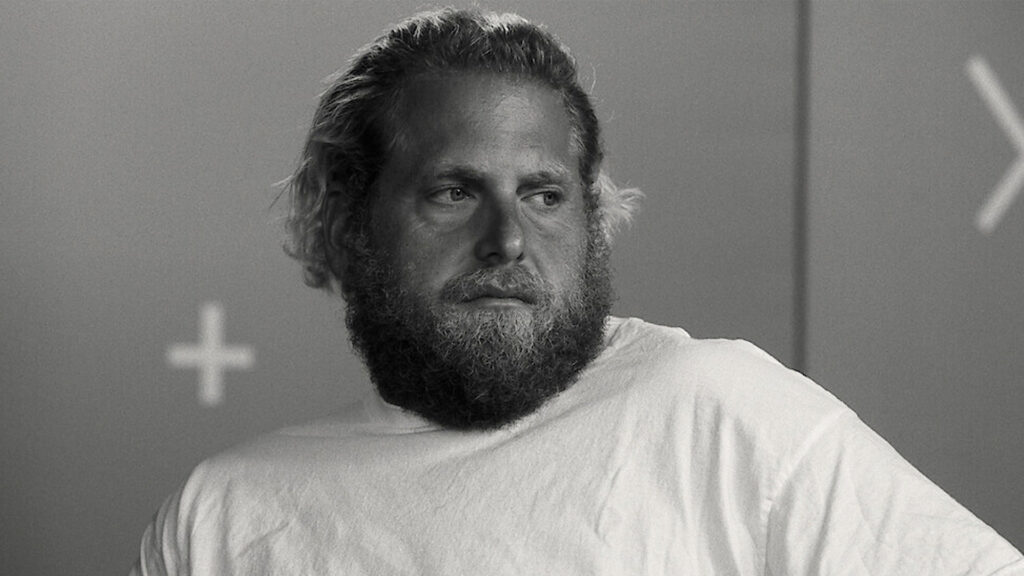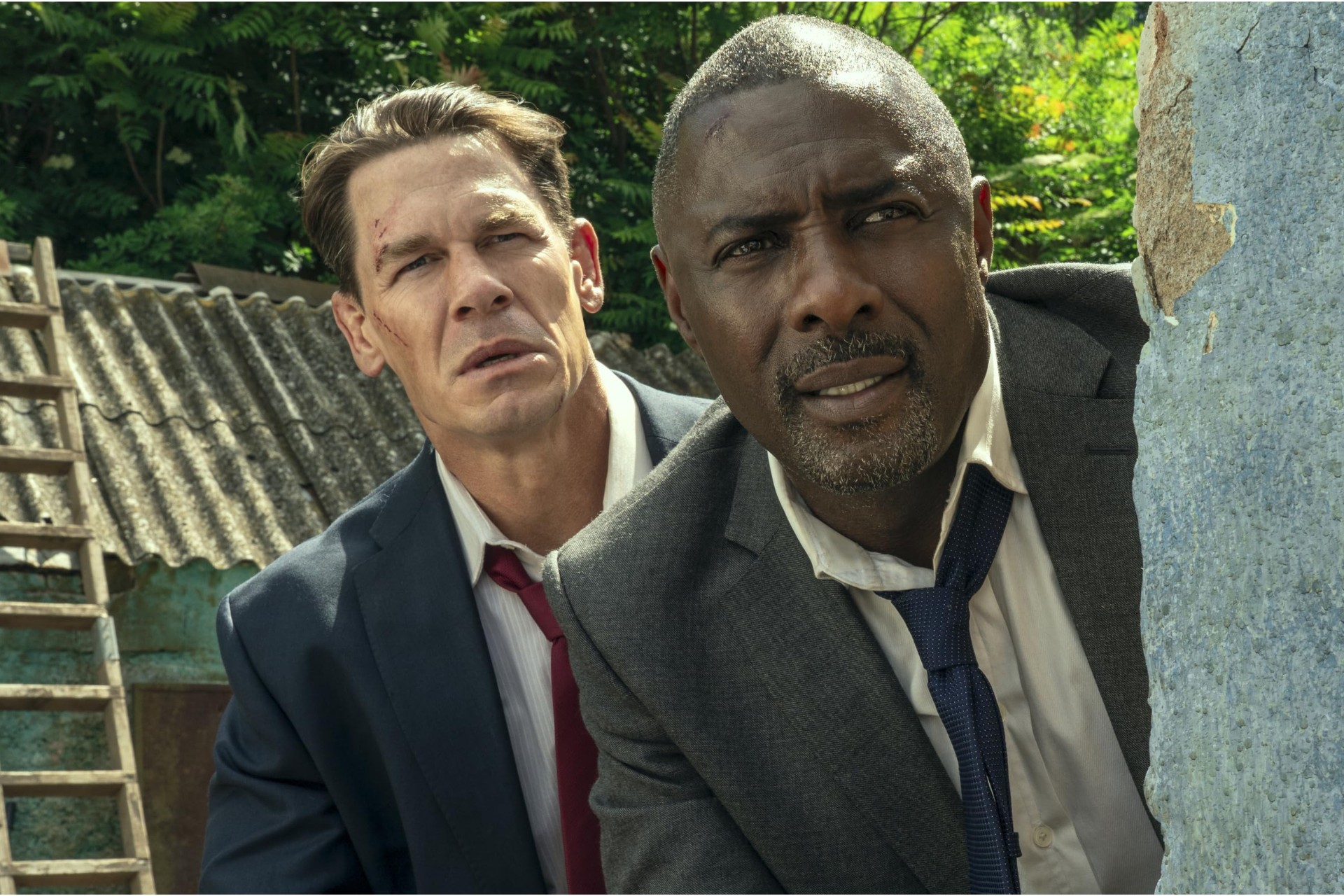Why pulling our mates up is rarely a bad idea
Too often, men hesitate to call out bad behaviour. In this week's edition of 'Winging it', Jonathan Seidler looks at what could be gained if more of us intervened.

Jonathan Seidler is an Australian author, father and nu-metal apologist. You may have read his memoir, caught his compelling live performance at this year’s Sydney Writers’ Festival, or noticed his distinct eyebrows on the street. He has some interesting things to say about music, fatherhood, Aussie culture, mental health and the social gymnastics of group chats. This is his column for Esquire.
It definitely wasn’t the first time my father pulled me up for naughty behaviour, but I remember it clearly. We were on a family trip to Bowral, about two hours south of Sydney, and on the way home, we stopped in at the Bradman Museum. I was 11, aka the age at which stealing things seems like a good idea. It’s for this reason I pocketed a signature cricket ball on the way through the gift shop. It took precisely three minutes for my Dad to realise I’d nicked it, and not only did he make me mail it back when we got home to Sydney, but he also made me look up the RRP and pay for it out of my own savings. The importance of accountability would become one of many lessons Dad taught me, but also, a window into the practice of stepping in and calling out inappropriate (and in this case illegal) behaviour, in the name of positively reconfiguring someone’s path in life.
It wasn’t exactly an intervention, the modern definition of which is to artificially (and often awkwardly) insert oneself into a situation in order to change its course. These days, this kind of meddling tends to be applied sparingly, saved for the big bad stuff we can’t sort out on our own. Issues like alcoholism, drug, sex or gambling addictions, as well as severe mental health issues.
These are all completely valid reasons to intervene on the life of a loved one; you only have to look to comedian John Mulaney’s recent star-studded intervention to see the benefits of having mates that care sitting you down until you acquiesce and agree to change your behaviour — or at least assist in finding the appropriate professionals to help you on your way. But by reserving the act of intervening for severe issues only, we neglect stepping in on the smaller missteps men make, that are nonetheless inappropriate and detrimental to ourselves and the people in our lives.
@quietinthetheater How does he make an intervention sound hilarious 😂
♬ original sound
We need to normalise intervening when mates abuse Class As at lunchtime on a Wednesday; when friends are stuck in dead-end jobs and can’t pull themselves out of their own misery; when blokes drive like idiots with their kids in the back seat and guys crack racist jokes at the bar when they think nobody is listening.
In my experience, when this behaviour is flagged, oftentimes it’s by others in a friendship or family group who realise something’s a bit off. But in these circumstances, with no pressing need to get involved beyond a decent set of ethics and every possible chance for it to blow up into a nuclear argument, the stakes tend to remain low. I’ve found these issues are usually addressed with the classic ‘somebody should talk to him’, or ‘we should sit him down and have a chat’ — open-ended suggestions that lead to precisely nothing being done.
Interventions have impetus, gravitas. What if we took the learnings from the more dire end of the social spectrum — such as Mulaney turning his life around, thanks to the concern and positive initiative exhibited by his mates — and integrated it into our everyday life?
Jonah Hill’s recent fall from grace is a great example of someone that could have benefited from being pulled aside and pulled up. While the text messages between Hill and his ex-girlfriend were largely private, I find it implausible that some of his friends (or his therapist, but Twitter, Threads and the rest of the internet has already raised the irony of Stutz) weren’t at least aware of his controlling and sexist behaviour. Others certainly were.
if ur bf says not to post that bikini pic ask him if that’s the jonah hill he wants to die on
— 🤙🏻soso🤙🏻 (@sophiebuddle) July 9, 2023
Guys that speak like this over text tend to conduct themselves similarly in the real world, so I’m sure Hill’s behaviour would’ve been the subject of conversations in certain circles before those texts were leaked onto the Internet. This means a whole lot of mates doing not much, or feeling ill-equipped to confront Hill about his attitude and weaponising of therapy-speak to serve his own ends.
Maybe intervention is the wrong word. It’s a pretty loaded term at this point in history. But we need a halfway point for stepping in and calling shit out, with the understanding that it’s coming from a place of love. Part of the social contract of being a man is that you will inevitably do a few stupid or borderline cancellable things in your life. Acknowledging this, and having the courage to approach a mate and tell them they should stop trying to pretend we aren’t all losing our hair, or that sending thirst traps to an ex is not something to be proud of, could be pretty massive for mankind.
Jonathan Seidler is an Esquire columnist and the author of It’s A Shame About Ray (Allen & Unwin).
Like all proper columns, this one will be back next week. You can see Jonno’s first column for Esquire here.























